Best Time to Visit Tanzania
Our safari itineraries are customized based on your readiness to travel, interests, desired destinations, and preferred activities. For witnessing the wildebeest migration, we recommend the green season from December to April for the calving season. From June onwards, the Northern Serengeti and river crossings into Kenya's Maasai Mara offer the best sightings. We tailor your itinerary to ensure optimal wildlife viewing regardless of the month, considering your interests and budget.
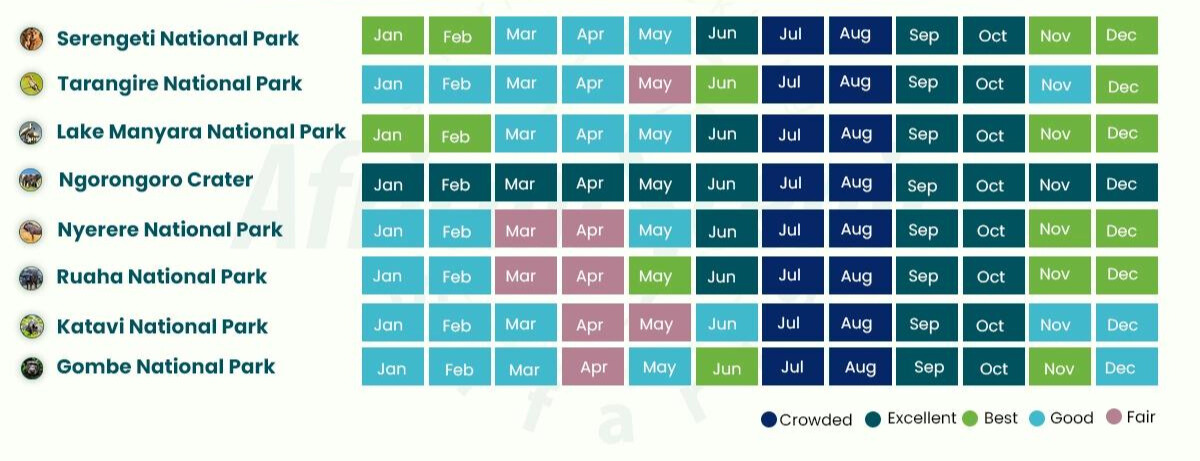
Weather and Climate in Tanzania
Tanzania boasts a diverse climate influenced by altitude. Coastal regions are hot, while western and southern parks are hot yet less humid. Inland areas are milder, cooling significantly at night. The country experiences two distinct seasons: the dry season from June to October and the wet season from November to May, with a short dry period in January-February. The northern safari circuit, known for its high elevation, offers pleasant conditions for game viewing throughout the year. From June to October, afternoon temperatures range between 20°C and 30°C, accompanied by clear skies and sunny weather. During the wet season, temperatures remain consistently hot, albeit slightly cooler above 1,300m, with chilly mornings in the northern parks due to altitude. Overall, Tanzania's climate caters to various preferences, ensuring enjoyable experiences for tourists exploring its natural wonders.
The Best Way to get to Tanzania
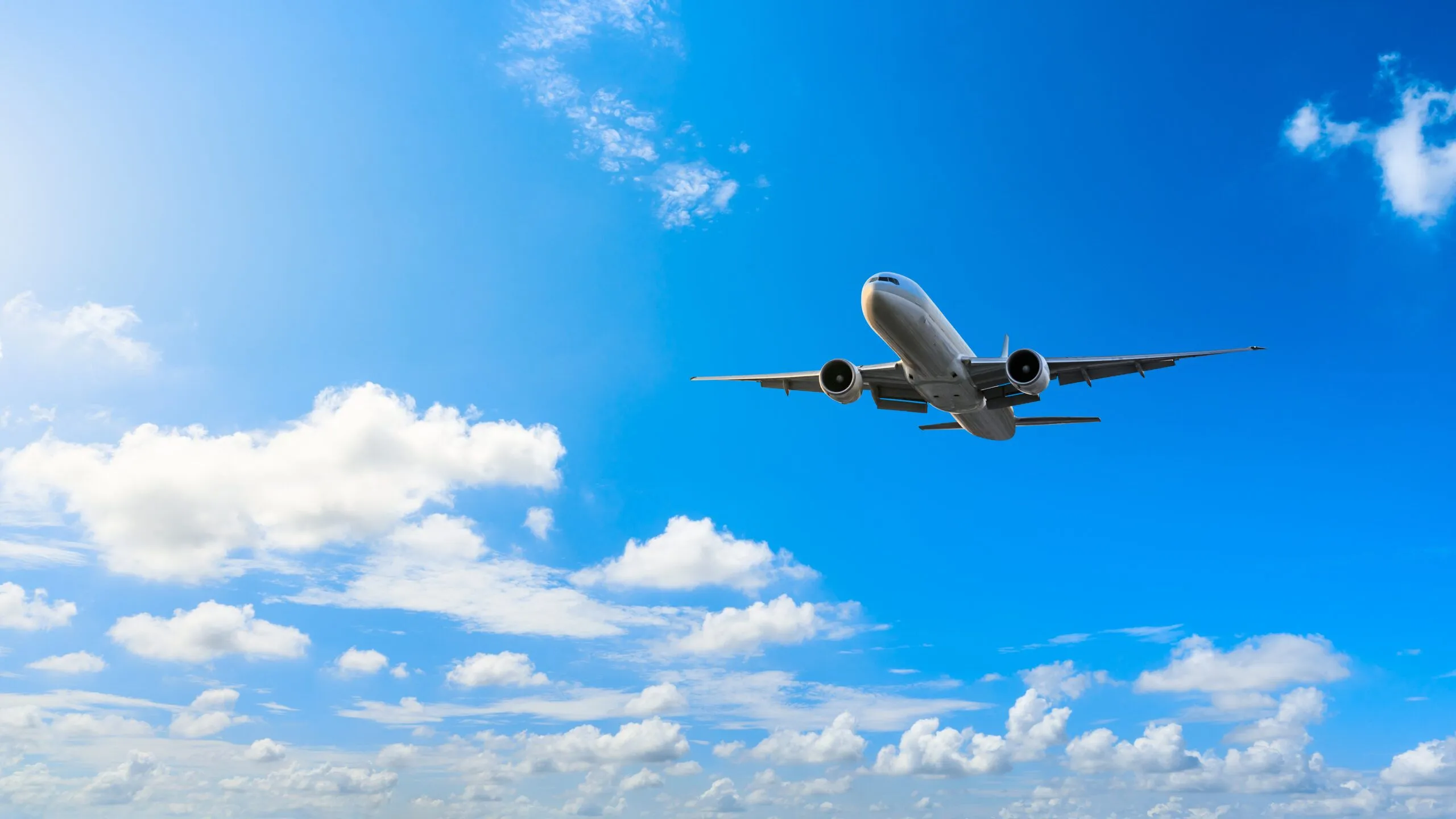
North America. At the moment, there are no direct flights from North America to Kilimanjaro International Airport (JRO) but you can travel with KLM transiting in Amsterdam. It is also the possible to book flights to Istanbul and fly from there directly to Kilimanjaro Airport with Turkish Airlines.
South America. From Sao Paulo / Brazil you can fly via Amsterdam with KLM and from there, direct to Kilimanjaro Airport.
Europe. You can fly directly via Amsterdam with KLM, Istanbul with Turkish Airlines or from Frankfurt with Condor (during high season). Other options are with Qatar Airways via Doha and Ethiopian Airlines via Addis Ababa.
Asia. If you are flying from/via Bangkok the best option is Ethiopian Airlines with a stopover in Addis Ababa to Kilimanjaro Airport. Also, you can fly via Nairobi with Kenya Airways. From Shanghai, you may fly to Kilimanjaro airport with Qatar Airways via Doha.
Type of Clothing to Wear
Casual, comfortable and easy to wash clothes are highly recommended. The goal is to pack as lightly as possible since most lodges and camps launder clothes for a small fee. Safaris are informal, therefore there is no need to dress up. Plan to dress in layers so you can adjust to the temperature changes since early morning game drives can be quite cold depending on the time of year and daytime temperatures can get warm. Stick to neutral colours or khaki colours and avoid wearing dark blue or black clothes because these colours tend to attract tsetse flies. Wide brimmed hats, sunscreen, sunglasses, and insect repellent are necessary to bring. After sunset, we recommend that you wear long pants, long-sleeved shirts, socks and spray insect repellent to avoid being bitten by mosquitoes.
Recommended safari clothing:
T-shirts and tank tops, Shorts, Long-sleeved shirts (for protection from sunburns), Light long pants or convertible long-short pants, Warm fleece pullover or jacket, one swimsuit, Cotton socks and underwear, Pajamas, Cotton socks and underwear, one pair of comfortable walking shoes, one pair of sandals or flip-flops, Wide-brimmed hat, Bandana (for dust), Heavy sweater, gloves, and toque if traveling in the cold season (June – August)
Clothing for Zanzibar:
Please dress modestly when sightseeing in Stone Town or visiting anywhere outside of the beach resorts in Zanzibar. Women should not wear sleeveless or revealing tops and short skirts or thigh-high shorts (Capri trousers or at least knee-length shorts are fine). Men should wear shirts, pants or knee-length shorts.
Other Items to Pack
Essential items for your safari adventure include passport, plane tickets, travel insurance, emergency contact numbers, yellow fever vaccination certificate (if required), safari itinerary, U.S. dollars in various denominations, credit cards, sunglasses, sunscreen, lip balm, flashlight or headlamp, insect repellent, eye drops, extra contact lenses or glasses, hand sanitizer, tissue paper, travel towel, camera, extra memory cards, batteries, charger, UK plug adapter, ziplock bags, personal toiletries, first aid kit, including medications like Tylenol, ibuprofen, antimalarials, allergy medicine, band-aids, stomach ache remedy, antibiotic cream, diarrhea medicine, prescription antibiotics (like Ciprofloxacin), and any other necessary medications. Carry these in your carry-on to avoid issues with checked luggage delays or loss. For optimal wildlife sightings, embark on early morning game drives starting at 6:00 am when animals are most active and lighting is ideal for photography. Your safari guide will arrange breakfast boxes for your convenience.
See more: Mount Kilimanjaro Technical Clothing
Can Children go on a Safari?
Embarking on an African safari with your children is a deeply enriching experience, fostering lasting family bonds and cherished memories. It cultivates an early appreciation for our planet's beauty and wildlife, vital for conservation. Family safaris offer educational opportunities, cultural immersion, and interaction with local communities. However, it's crucial to note that most safari accommodations lack fencing, allowing wildlife to roam freely. Therefore, it's imperative to supervise children at all times and heed safety briefings from guides and lodge staff, particularly regarding movement after dark.
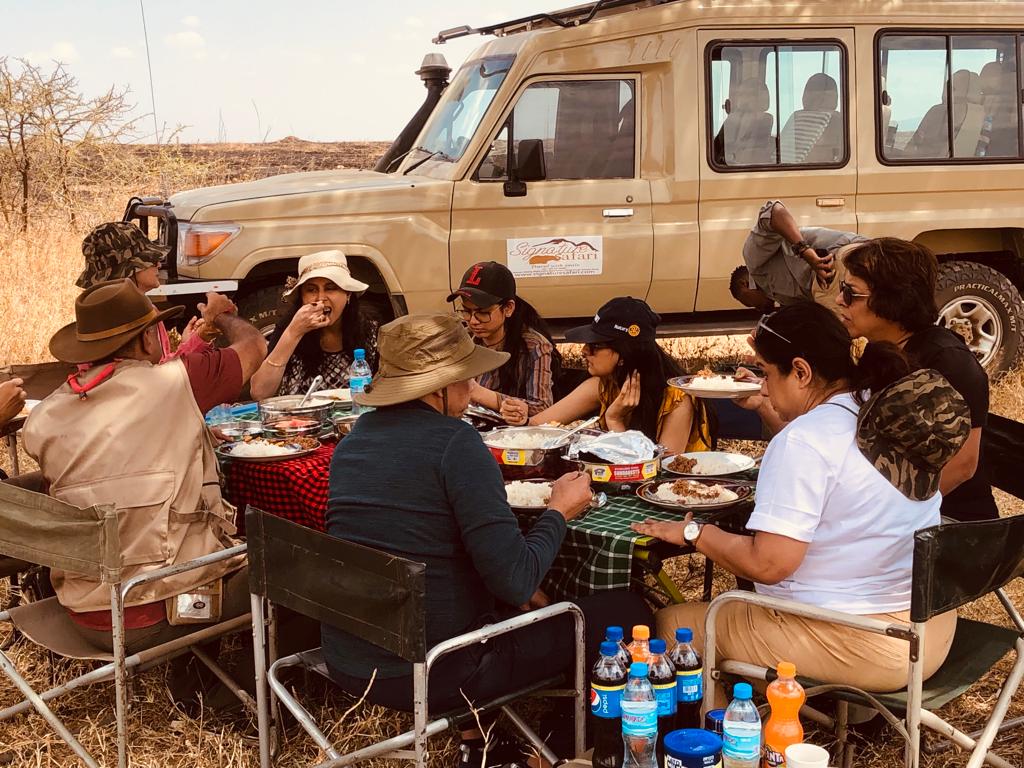
Checkout: Tanzania Perfect Family Safari
Is There Internet Access at the Lodges / Camps?
Mobile or cellular coverage is available in numerous parts of national parks and conservation areas, albeit with intermittent reception and weak signals. In remote zones like the Northern and Western Serengeti, signals are absent. However, lodges and camps often offer paid telephone or email access for communication with loved ones.
Electricity at the Lodges/camps
Outside of the major towns, electricity supplied in rural areas are provided by solar cells or generators. Most of the lodges and camps inside the parks are only able to provide lighting/power to guest rooms at set times in the morning and afternoon but some of them have a 24-hour electrical supply especially in towns near the parks during your safari. Most lodges do not have in room electrical sockets but the charging facilities are available, so please ask at reception or your guide. Please bear in mind that solar power is weather dependent and at times insufficient sunshine mean that lighting is limited. When generators are running, electrical supply will be available but in other instances alternative lighting is normally provided e.g. storm lanterns or torches. The electricity supply in Tanzania is 220-240 volts/AC50Hz. Plug sockets do vary and we advise visitors to take multi-adapters to cope with 3 square pin sockets (UK) and some places may use 2 round pin sockets (European). Some lodges and camps only have power in the early mornings and evenings. Batteries may be recharged in camps and you can check with the camp staff on arrival.
Do I need Travel Insurance?
Please ensure you have sufficient travel Insurance and that you travel with the necessary Insurance documents. In addition, Signature Safari has partnered with AMREF flying doctors and can offer emergency medical evacuation insurance. (Insurance is for evacuation only)
Sort of food to Expect
Food served at safari lodges and tented camps are top-notch. Gourmet cooks at select lodges craft fresh bread, soups, salads, and entrées akin to fine dining. Meals offer international flavors with options for vegan, vegetarian, and gluten-free diets. Dining is often communal, fostering lively discussions amidst elegant settings.
Menus include:
- Breakfast or brunch: Featuring omelets, quiches, salads, toast, sausages, pastries, and fruits.
- Lunch: Typically picnic-style or hearty meals at the lodge with sandwiches and fruits.
- High tea: Afternoon snacks like roasted nuts, cakes, sandwiches, and tarts.
- Sundowners: Enjoying alcoholic beverages with snacks as you watch the sunset.
- Dinner: Three-course meals with soup, mains, and pudding, ranging from butternut soup to pasta dishes.
- Drinks: Varied options from water to wine and beer, with filtered water typically available.
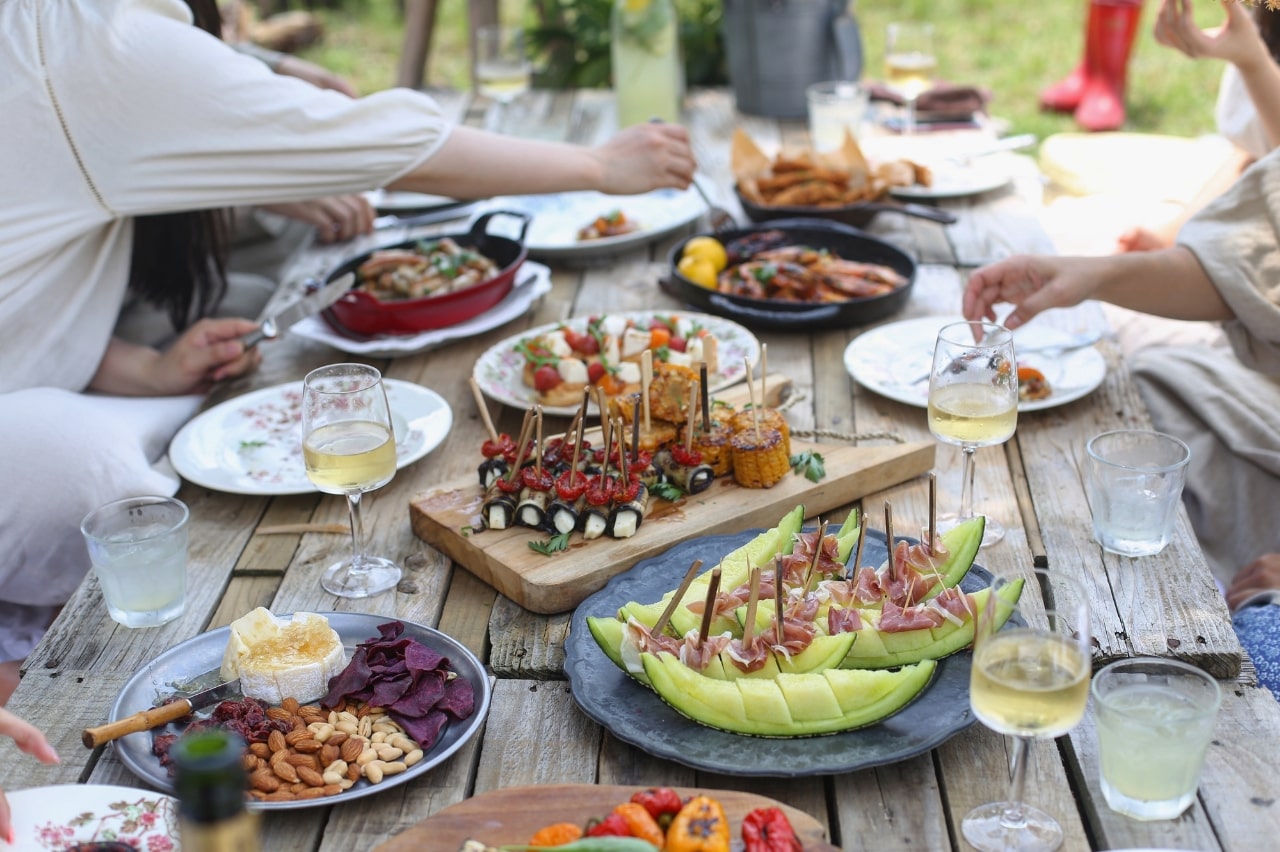
Safety in Tanzania
Tanzania is not very different from any other destination in the world. Common sense should prevail, and precautions should be taken as in any major city that exists. Use hotels and lodges safety deposit boxes whenever possible. If you are walking in towns or cities only carry small amounts of cash and do not wear obvious jewellery or display expensive possessions. Rather than walk in cities at night, we recommend that you ask the hotel to arrange you a taxi.
Interaction with the Locals
It is possible to interact with the locals during your visit to Tanzania, whether you are on a safari or Zanzibar. We can include different activities which will let you to meet with local people in our beautiful country to learn more about their culture and tradition. You may visit the Maasai villages, the Hadzabe bushmen at Lake Eyasi, MtoWaMbu village to a visit to local primary schools and orphanage or shopping at a local market, these activities can easily be included in your itinerary.
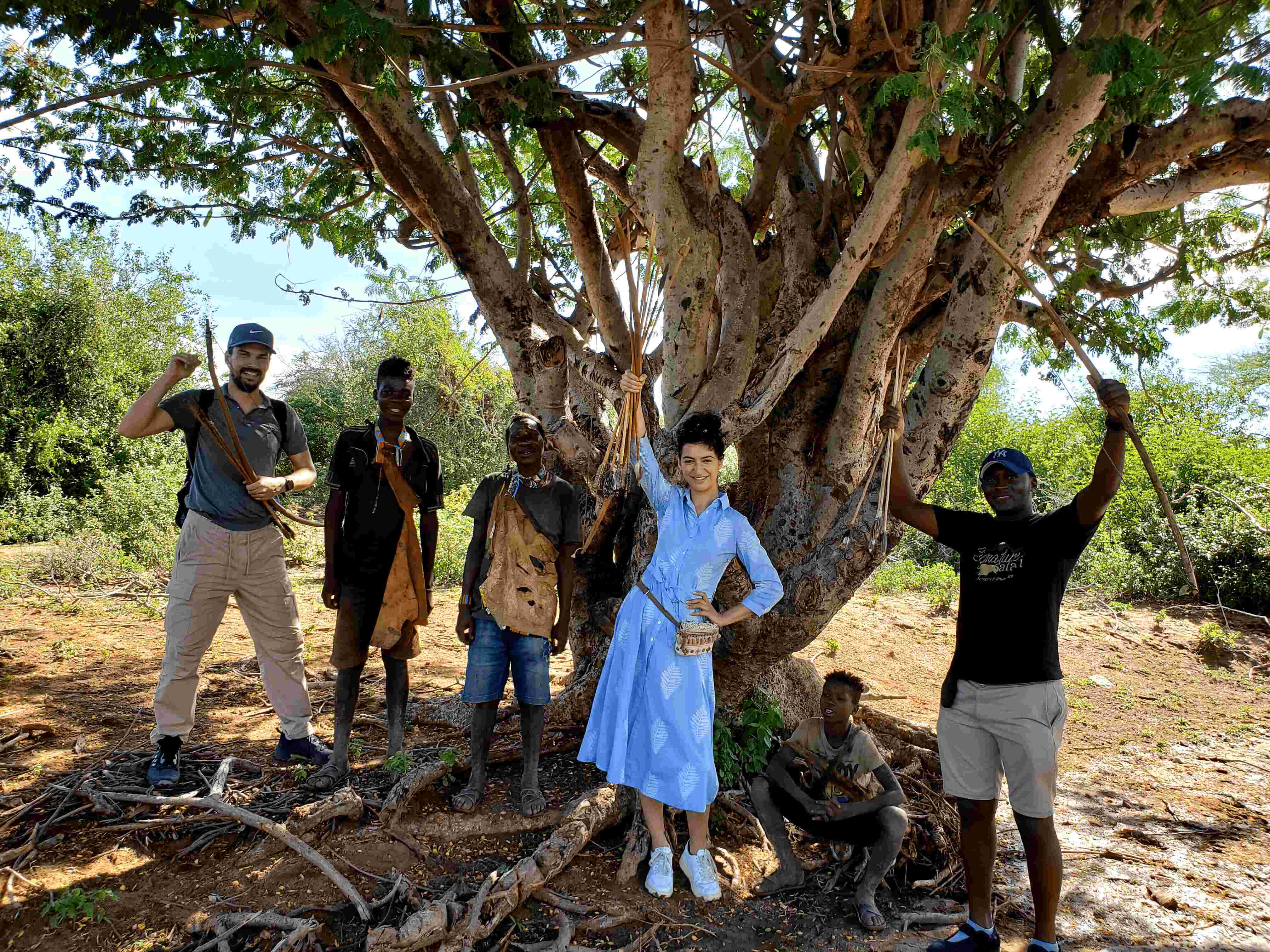
How much should I tip?
In Tanzania it is customary to tip as a way of expressing gratitude. Below is a general guideline, however this is just a guideline - tipping is at your discretion:
- Porters US$ 1 per person per day.
- Waiters US$ 2 per person per day.
- Driver guide US$ 10-15 per person per day.
Leave a comment